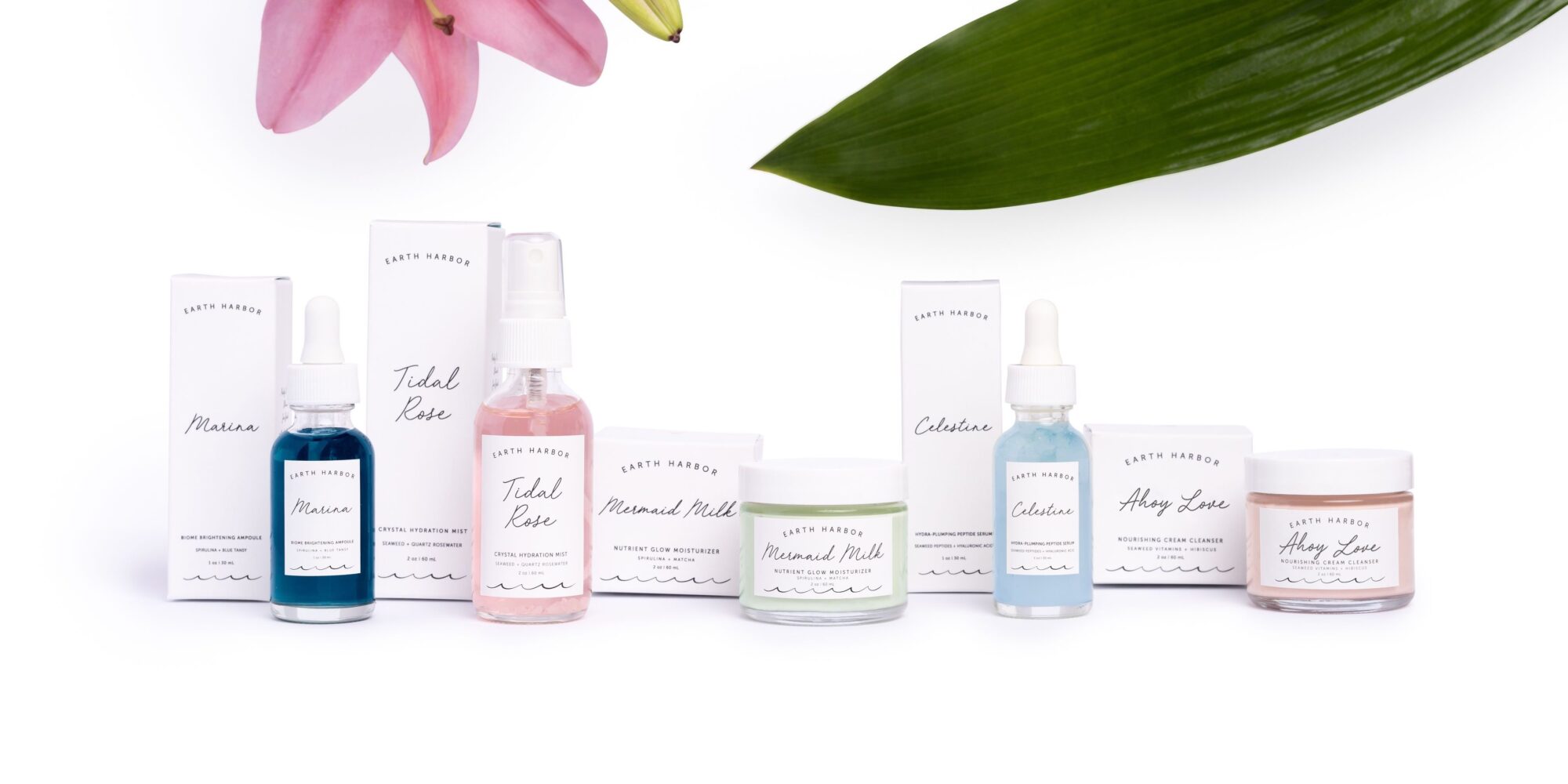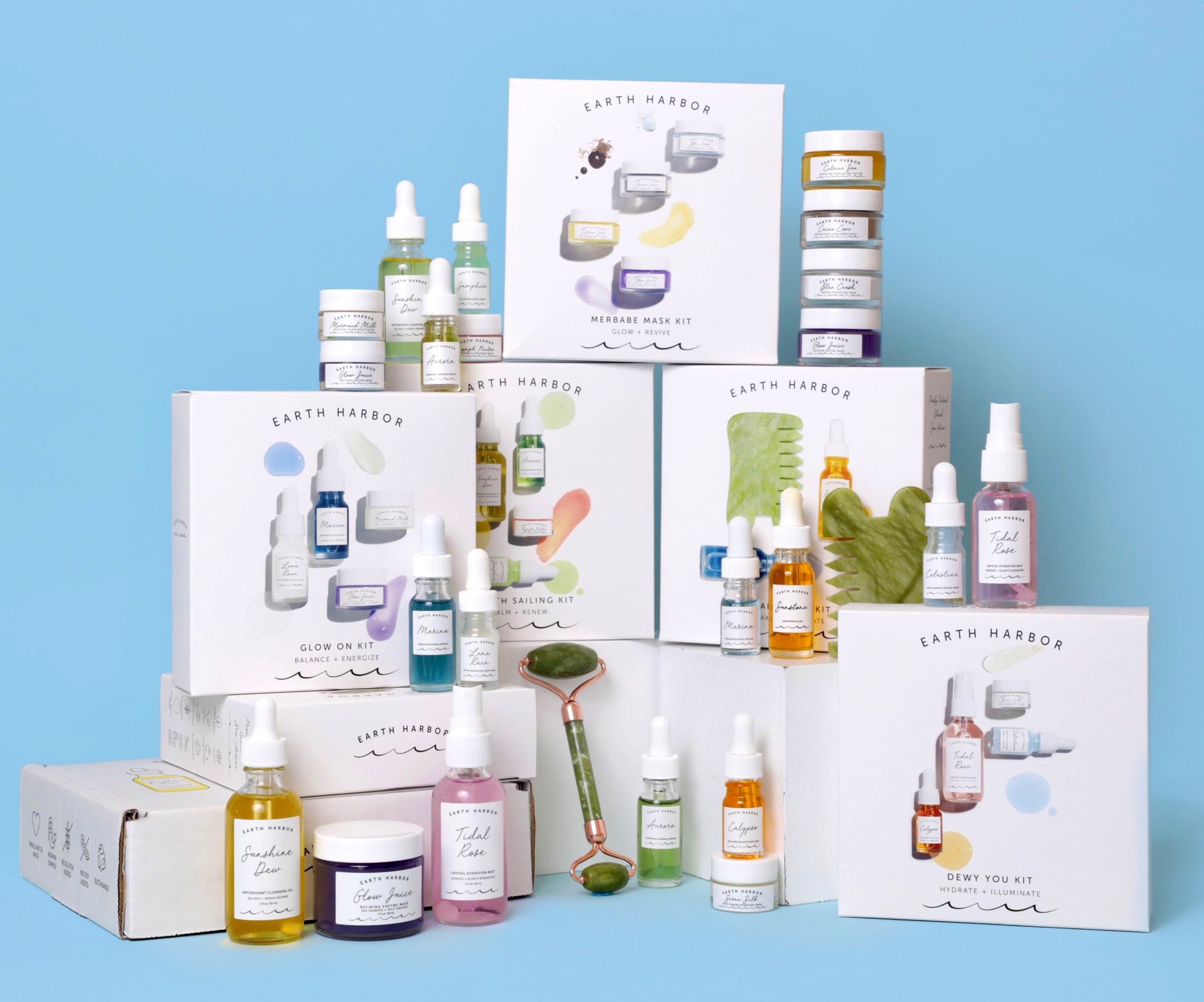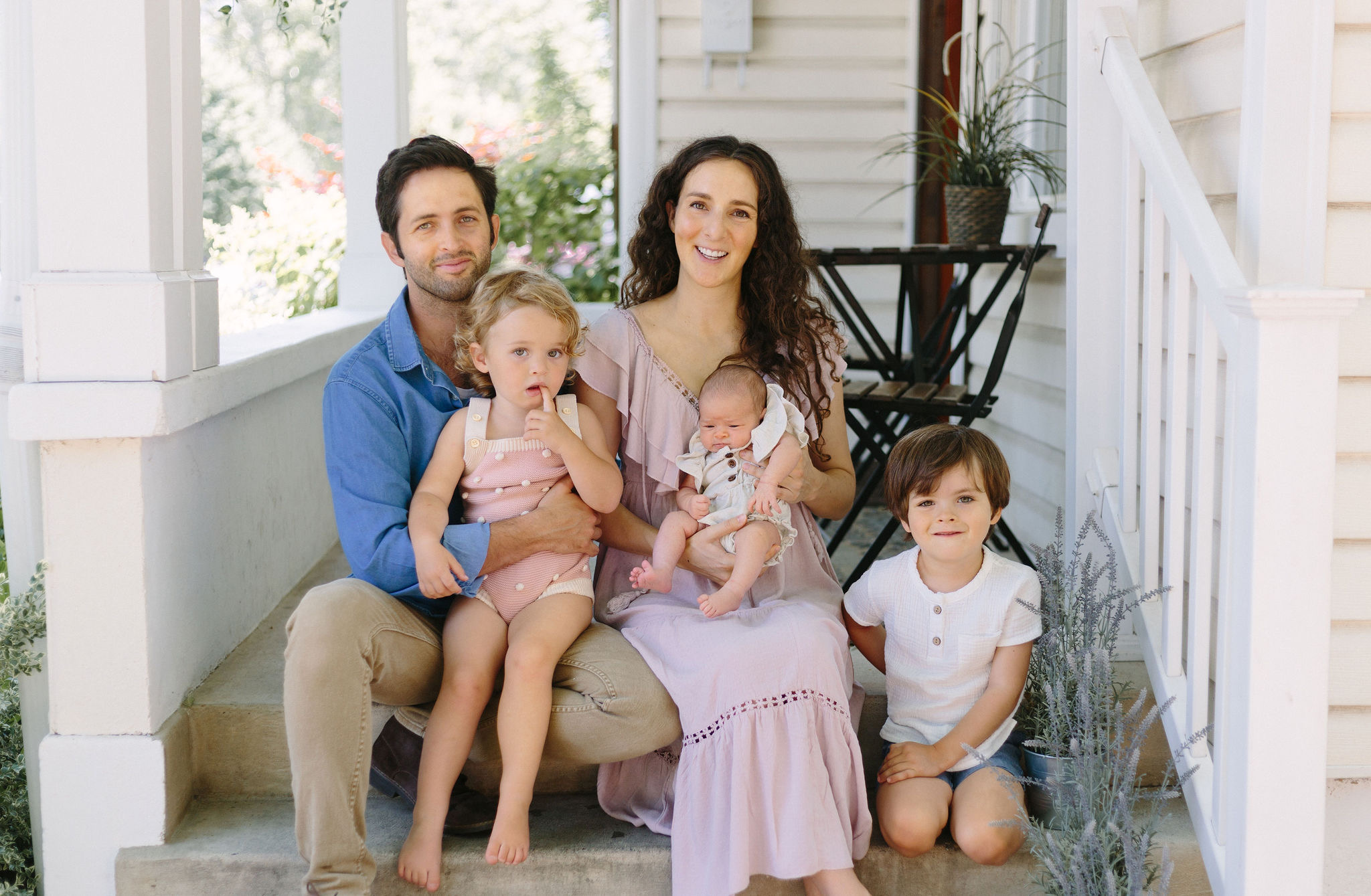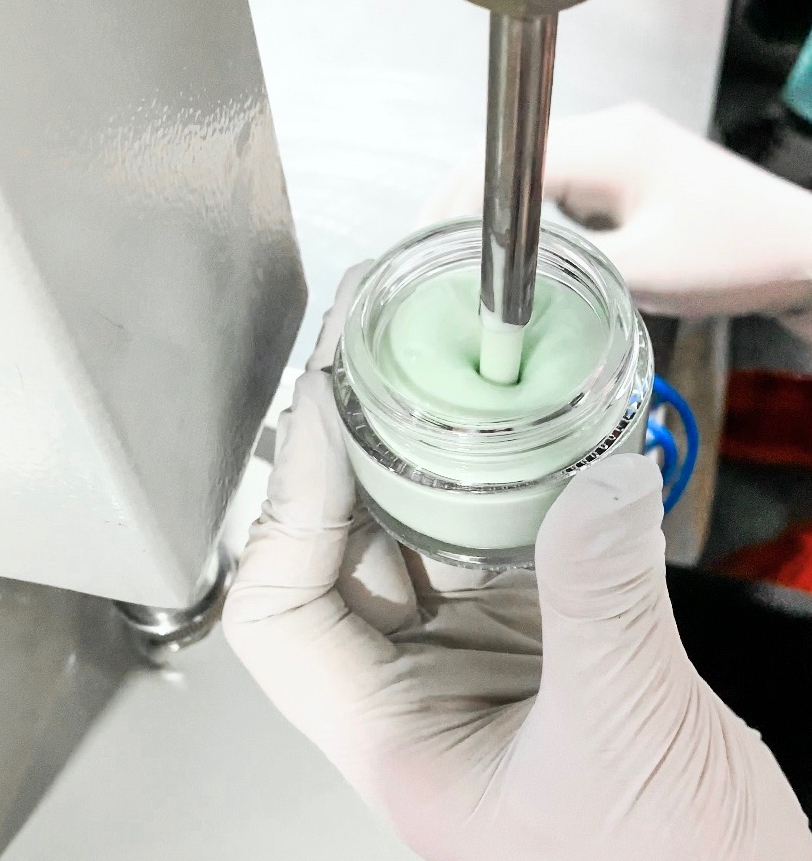
Earth Harbor Readies To Enter Ulta Beauty, Grows Third-Party Manufacturing Business
In 2018, Ali Perry-Hatch started selling Earth Harbor products at farmers’ markets, but she was out to place the brand in much larger distribution. “Right away my sights were on Whole Foods and Ulta,” she says. “I’ve always been a type A go-getter.”
Two years later, Earth Harbor launched at Whole Foods, where the brand focused on natural formulas, sustainability and ethical sourcing is in 300-plus locations, and it will launch at over 600 Ulta Beauty stores next month with 10 individual products and a kit, about third of its total assortment, which is priced from $12 to $50. The brand is also carried by Anthropologie, Thrive Market and Asos. Asos is expanding Earth Harbor globally with its entire line.
“I feel like my brain is flooded with endorphins when I think about Ulta. It means we are casting an even wider net now,” says Perry-Hatch, co-founder and CEO of Earth Harbor. Her husband Shane Hatch, co-founder and COO of the brand, says, “It helps legitimize the brand more as we enter the bigger retailers.”

Unsurprisingly, Perry-Hatch’s go-getting has been crucial to Earth Harbor realizing distribution opportunities. After connecting with a senior buyer at Ulta a number of years ago, Perry-Hatch made sure she wouldn’t forget about the brand.
“I didn’t have her email. I literally just had her address because we had sent her a few products at some point, and I just kept it up every few months with, ‘Here’s a new product, I hope you are doing well,’ not pushy at all, just keeping the door open, and all of a sudden we are in Ulta,” recounts Perry-Hatch. “It was all those sweet touches that helped seal the deal.”
What helped seal the deal, too, is Earth Harbor’s conscious positioning and pricing that’s not exorbitant. On average, an Earth Harbor product is about $23. Perry-Hatch says, “This year and the year before was all about sustainability, and I don’t think that’s ever going away, but, along with all of the expectations stacked on indie brands now for having as high ethical standards as possible and being as sustainable and transparent as possible, with the looming recession, accessible pricing is important.”
“We are the first plant-based skincare brand to have been founded by a toxicologist, but it’s not just plant-based, it’s going beyond clean because we are ethical, sustainable and rooted in science.”
In 2020, Ulta initiated its Conscious Beauty selection incorporating clean ingredients, cruelty-free and vegan formulas, sustainable packaging and positive social impact. There are 290 brands in the selection today, and Earth Harbor is joining it. During Ulta’s conference call discussing its earnings for the quarter ended Sept. 30 last year, Ulta CEO Dave Kimbell said, “Conscious beauty continues to resonate strongly with beauty enthusiasts, reflecting growing interest in products that are good for the world.”
Earth Harbor takes conscious beauty seriously. Perry-Hatch, a former environmental social enterprise co-founder, herbalist and toxicologist with a master’s degree in public health who once lived off the grid with Hatch, came up with the original plant-based Earth Harbor products after using them on herself as she recovered from a near-fatal car accident.
“We are the first plant-based skincare brand to have been founded by a toxicologist, but it’s not just plant-based, it’s going beyond clean because we are ethical, sustainable and rooted in science,” says Perry-Hatch. “All of our products have an actual clinically proven botanical active in them.”

Many clean beauty brands in Earth Harbor’s early days specialized in oil-based products because they’re easier to preserve, but her know-how allowed the brand to create clean cream-based products, although it did have oil treatments at the outset as part of a roughly 12 stockkeeping unit-collection meant to enable consumers to satisfy complete skincare routines with its natural products.
The brand has accumulated a long list of certifications to verify its products are clean, cruelty-free and eco-friendly. For example, it has certifications from PETA, Leaping Bunny, Climate Neutral, Sustainable Forestry Initiative, Think Dirty and Campaign for Safe Cosmetics. In addition, it has an internal sustainability transparency program.
Earth Harbor handles manufacturing and sourcing itself, and always looks for ingredients from fair trade-certified and Ecocert suppliers. Suppliers without those certifications have to sign an Earth Harbor document corroborating that their ingredients are cultivated without harming the earth or workers. The brand has a supply chain expert and cosmetic chemist in-house to safeguard that it lives up to its standards.
“We are almost a new-age lab. A lot of manufacturers have been around for a while, and they are mired in the old ways.”
Perry-Hatch explains the brand brought its “manufacturing, R&D, sourcing and fulfilling, except for our sunscreen, in-house so that we can control our supply chain without having to rely on contract manufacturers, iterate on trends more quickly, and most importantly, control sustainable practices and ethical operations plus sourcing as well as ensure that efficacious amounts of active ingredients are administered into each product.”
Earth Harbor’s in-house capabilities permit it to explore various merchandise extensions without having to turn to outside companies. The brand’s skincare bestsellers are Mermaid Milk Nutrient Glow Moisturizer and Marina Biome Brightening Ampoule, but it stretches to haircare and body care and expects to dive deeper into those product categories. Earth Harbor has released travel sizes of its bestsellers that are priced under $25.
Intimacy and aromatherapy are product extension possibilities, and Earth Harbor is interested in developing back-bar sizes for spas. It’s in spas, cooperative grocers, small pharmacies and boutiques on top of large retailers. Careful not to overload the bootstrapped brand, Perry-Hatch says it expects to launch a product quarterly.

Earth Harbor may not rely on external manufacturers, but it’s becoming one for external brands. Currently, its direct-to-consumer sales constitute about a third of its revenues, and Hatch believes its nascent third-party manufacturing business headquartered in the Provo-Orem area in Utah could equal its DTC turnover in the years ahead. Earth Harbor has around 35 people on staff full-time and the capacity to produce 50,000 units daily, but is generally producing 20,000 units daily at the moment.
“People want what we have done. They see all of our certifications—and that’s where the industry is going. We are almost a new-age lab. A lot of manufacturers have been around for a while, and they are mired in the old ways,” says Hatch. Perry-Hatch chimes in, “I don’t feel there are any labs or co-packers out there that really care about what we care about.”





Leave a Reply
You must be logged in to post a comment.